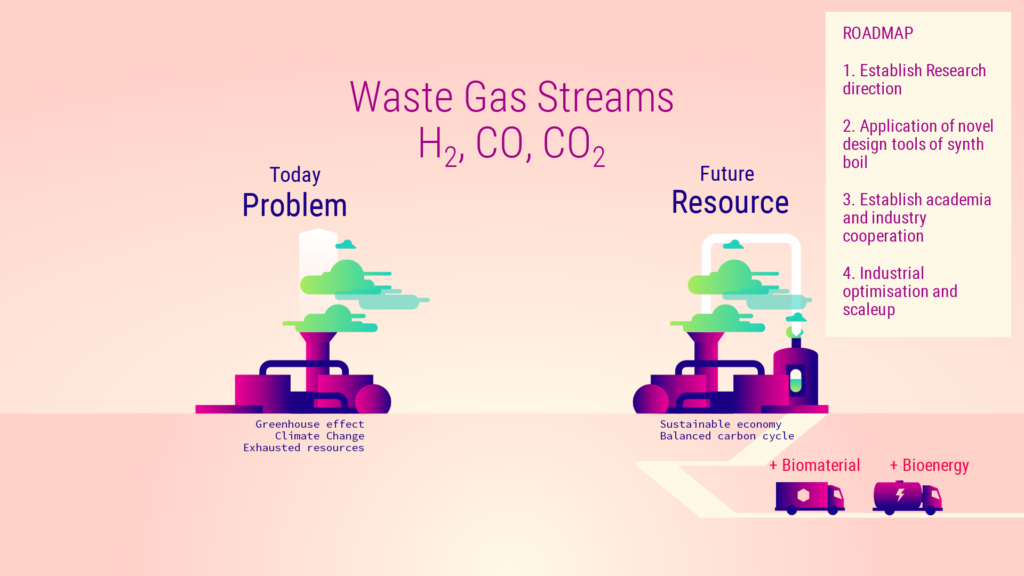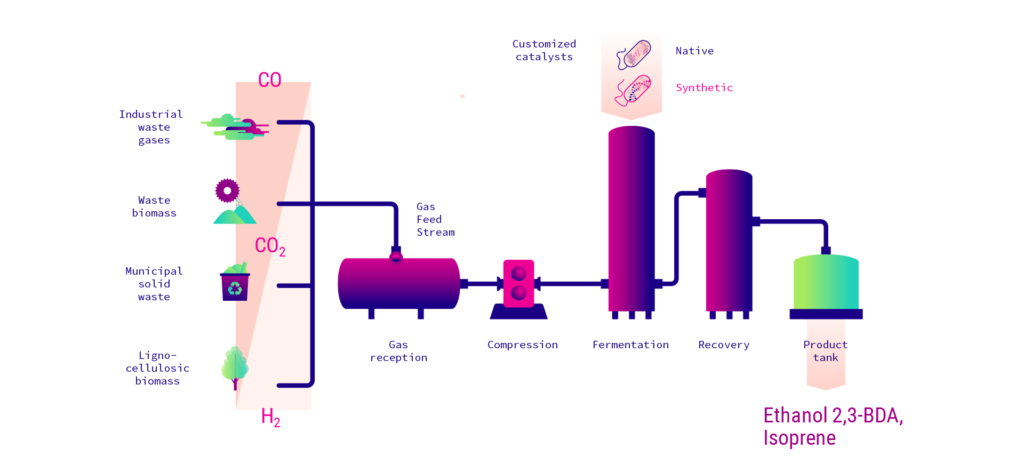Overview
The ERA Chair in Gas Fermentation Technologies (GasFermTEC) was established at the University of Tartu in 2018 with the prestigious European Research Area (ERA) ERA Chair grant awarded to Mart Loog, Professor of Molecular Systems Biology. The ERA Chair grant, which originates from the EU’s research and innovation funding program Horizon 2020, was awarded to Prof. Mart Loog to establish a centre for gas fermentation technologies at the University of Tartu. The funding will be used to create a state-of-the-art lab-scale gas fermentation facility and a leading team of excellent researchers with a background spanning gas fermentation and systems and synthetic biology. In March 2019, Dr Kaspar Valgepea was appointed as an ERA Chair in Gas Fermentation Technologies to lead the centre.
The first Horizon 2020 call for ERA Chairs was launched in 2013 with a budget of €33.6 million, following a pilot call under the 7th research framework programme (IP/14/125). The aim of the ERA Chair grant is to enable institutions to attract top academics so that they can compete with centres of excellence elsewhere in the European Research Area (ERA). We are currently building a research team with the aim to address global challenges of biosustainability through integration of gas fermentation technologies with systems and synthetic biology. We expect to advance and leverage on the latter platforms to facilitate rationale metabolic engineering of super cell factories for sustainable production of fuels and chemicals from waste feedstocks. In addition to local and regional companies, we collaborate with LanzaTech, the global biotechnology industry leader in gas fermentation, to accelerate the transfer of our research into practice.
Objective
Our goal is to address global challenges of biosustainability by developing bioprocesses that would realise sustainable production of fuels and chemicals from waste feedstocks, as opposed to the currently dominating fossil-based industries. For this, the ERA Chair in Gas Fermentation Technologies (GasFermTEC) at the University of Tartu specifically focuses on advancing gas fermentation technologies through its integration with systems and synthetic biology. This will facilitate rationale metabolic engineering of super cell factories for sustainable production of fuels and chemicals from waste feedstocks (e.g. industrial waste gases, municipal solid waste, biomass).
GasFermTEC was founded to develop a new research cluster in gas fermentation technologies within the Estonian Centre for Synthetic Biology (ECSB) at the University of Tartu. The group also aims to initiate a structural change that would present a novel form of partnership between academia and industry linked together by a regional competence centre for bioprocess optimisation and biosustainability research. Furthermore, GasFermTEC coordinates the strategic planning of a lab-scale pilot facility that contributes to optimisation of bioprocesses utilising various carbon sources (syngas, lignocellulosic sugars, etc).
What is gas fermentation?
Gas fermentation has become an attractive bioprocess for the sustainable production of fuels and chemicals from inexpensive and abundant waste feedstocks (e.g. industrial waste gases, municipal solid waste, biomass) using acetogen bacteria (i.e. acetogens). Non-gaseous feedstocks (e.g. biomass) can be converted to syngas (CO, CO2, and H2) through gasification that allows acetogens to utilise and fix the C-1 compounds. Main advantages of gas fermentation are the use of non-food-based feedstocks, complete use of biomass as a substrate (including the lignin fraction), and high product versatility. Notably, a recent analysis concluded that some of the chemicals identified by the US Department of Energy as important for the transition to a bio-based economy could be produced using gas fermentation.
Gas fermentation is already deployed at industrial scale for the production of bioethanol from steel mill off-gases by a leading biotechnology company LanzaTech. They are currently in the process of building at least 4 additional industrial scale gas fermentation plants utilising various waste feedstocks.

